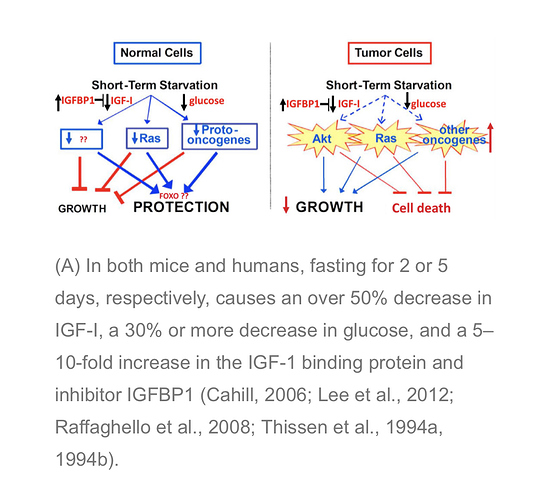I think your husband is a lucky man to have a wife like you.
He’s obviously a strong willed man who’s playing his hand with great fortitude in the face of this disease but I bet he’d agree with me.
I have no advice to offer but I genuinely hope you both get the results your efforts truly deserve.
As a means to save my hubby's life
Off topic- I am from India and lost my brother to cancer combined with dengue, a mosquito borne fever. There is a branch of Ayurveda called Rasashastra that gave very good results, and, combined with chemo, put him in remission for a while. You can read up on it here- (PDF) Metal-Based Therapy in Traditional and Modern Medicine …
https://www.researchgate.net › publication
I listened to the Pater Attia podcast with Thomas Seyfried. I actually liked the way he questioned him and how Seyfried handled it. Left me with more confidence that the metabolic approach is scientifically compelling.
Thank you for introducing me to Dr. Lemanne. I took your advice and listened to several of her lectures on YouTube.
I am very interested in how to reduce glutamine, as a “pulse” therapy. After some digging I found one drug that may work. It’s called Ammunul. Mike’s Osteopathic Doctor is planning to consult with Nasha Winters. I just ordered her Seyfried’s book, and Nasha’s book, and Keto For Cancer. She is very excited to go down this path with us. There are others in her clinic besides Mike who may benefit.
Thank you for the advice. Hubby and I are in training for an extended fast right now.
Good luck on journey.
@sgranger1967, I sent you a PM earlier. I hope you find it inspiring.
I am so very sorry to hear of your and your husband’s struggles. I empathise so much having travelled that Cancer road with my wife- stage 4 which she is now thankfully 8 years clear.
Stay strong, I am convinced the keto way is much better than the way wife ate through her battle and can only be beneficial to you both.
Here are some other interesting reads if would like to explore additional information:
[2] Fasting: Molecular Mechanisms and Clinical Applications - Valter Longo Michelson Medical Research Foundation
[3] OBJECTIVE. The purpose of this study was to evaluate the metastatic pattern of muscle invasive bladder cancer and to correlate the findings with the characteristics of the primary tumor. CONCLUSION. Lymph nodes, bones, lung, liver, and peritoneum are the most common sites of metastasis from bladder cancer. Tumors in a more advanced T category and those with atypical histologic features metastasize earlier. Tumors with atypical histologic features also have a higher frequency of peritoneal metastasis. …More
[4] Taken together, these results demonstrate that sulforaphane has antitumor effects against bladder cancer cells through an ROS-mediated intrinsic apoptotic pathway, and suggest that ER stress and Nrf2 may represent strategic targets for sulforaphane-induced apoptosis. …More
[5] It’s entirely possible, unlikely, but possible that fasting actually worsens certain types of cancer. Until fasting has been tested in 100+ types of cancer, we can’t know for sure. Their team are gradually doing these studies, but they are expensive and take time. Below is a summary of the key things Rhonda would do, and the key things Rhonda would avoid if she got cancer. Under that are more lengthy explanations as to her rationale.
Here are the key things she would do:
- Utilize fasting or the fast mimicking diet – which sensitizes cancer cells to death, and increases the stress capability of healthy cells to chemo/radiation
- Optimize her gut microbiome – which boosts the immune system in fighting cancer
- Supplement lots of broccoli sprouts – sulforaphane in broccoli sprouts has many similar effects to fasting; sensitizing cancer cells to death & increasing stress capability of healthy cells to chemo/radiation
- Increase exercise – again, has similar effects to fasting and sulforaphane
These are the key things she would avoid:
- Avoid animal meats; going on a more plant based diet – to reduce IGF-1 signalling, which can allow cancer cells to survive under stressors such as chemo/radiation
- Avoid high doses of supplemental antioxidants – such as vitamin A or C – which can reduce effects of fasting, exercise and sulforaphane
- Avoid all opioids – such as morphine, fentanyl, vicodin, oxycodone etc – These increase cancer metastasis
- Avoid the ketogenic diet – risk that ketogenic diets could be harmful depending on the type of cancer …More
Can’t even comment on the warning against keto in this context as it “might” cause issues. Just surprised that drinking water wasn’t listed as a potential danger… basically anything that is good for the host body “could” be useful to the cancer cells but the probability of its usefulness is the relevant variable.
Oxygen that keeps the host alive is also potentially good for the cancerous cells, right?
Need to identify the real risk of keto to that specific type of cancer before any “risk assessment” is made.
Frustrating.
Thank you. I had never read that report on metastasis before. I appreciate the info!
Rhonda doesn’t mention or seem to be aware that Liposomal Vitamin C acts almost identically to IV Vitamin C supplementation. IV treatment only has an effect for a few hours whereas a person can take Liposomal C several times a day and keep the blood levels of vitamin C up continuously. My personal belief is that 2 grams of Lipo Vit C taken 3 times a day is ideal and affordable over the short term.
Liposomal supplementation of any type is a game changer because whatever nutrient/ drug that is encapsulated in the liposomes makes it’s way directly into the blood stream without being digested.
The liposomes are phospholipids which is the same material that cell membranes are made from and this allows for easy docking and transfer of the payload into the cells.

